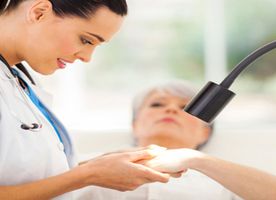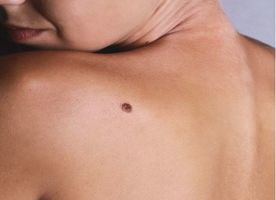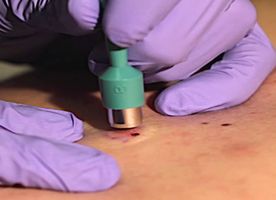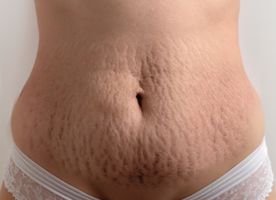Ingrown Toenail Treatment in Calle Max Planck
Search and Compare the Best Clinics and Doctors at the Lowest Prices for Ingrown Toenail Treatment in Calle Max Planck
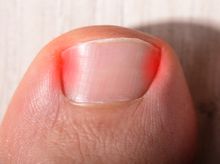
























































































































































No Time?
Tell us what you're looking for and we'll reach out to the top clinics all at once
What does the Procedure Involve?
Lifting the nail
If your problem is mild, meaning the nail is only slightly ingrown and there is no pus, your doctor may be able to carefully lift the edge of the ingrown nail and place a splint, dental floss, or cotton under it. The splint, dental floss, or cotton will set the nail in a new position, separating the nail from the overlying skin and helping it to grow above the skin.
Partial nail removal
Partial nail removal may be needed for a more severe ingrown toenail. This means that there’s redness, pain, and pus.
During partial nail removal, your doctor will cut away the sides of the nail so that the edges are completely straight. Then, a piece of cotton or a splint is placed under the remaining portion of the nail in order to stop the ingrown toenail from recurring. In some cases, your doctor may also use a compound called phenol to treat your toe. Phenol can keep the nail from growing back.
Total nail removal
If you experience ingrown toenails repeatedly on the same toe or if your ingrown toenail is caused by thickening, your doctor may remove your whole nail along with the underlying tissue (nail bed).
To start the procedure, your doctor will loosen the skin around and from the nail. Then, the nail is separated from the skin by using a special tool under the nail. Your doctor may use a laser, a chemical, or other methods to remove the nail.
All procedures are performed under local anesthesia, which is injected directly into the toe. With local anesthesia, you will be awake but your toe will be numbed, so you will not feel anything throughout the procedure.
How Long Should I Stay in Calle Max Planck?
You are allowed to leave the hospital on the same day of your ingrown toenail treatment. However, it is recommended that you stay in Calle Max Planck for a few days following the surgery, at least 3 days, to let your toenail to recover before you travel home. It may be uncomfortable for you to travel long distances during your initial recovery time.
What's the Recovery Time?
Recovery can be different for everyone. On average, it takes about four to six weeks to heal after partial nail removal and around 10 to 12 weeks after total nail removal. During the recovery time, you should be able to walk and carry on your life as normal after 3 days of rest. However, you need to avoid strenuous activities, including running and jumping for 2 weeks. It is also advisable that you avoid taking part in sports activities and dancing until you have fully healed.
What About Aftercare?
Your doctor will give you specific aftercare instructions, which may include:
-
If your doctor gives you pain reliever make sure to take it as directed. Your doctor may also give you oral or topical Medication (antibiotics) which helps get rid of the infection.
-
Keep your foot raised for a day or two to allow your toe to heal properly.
-
Wear special footwear for the first few days. Then, you can slowly start wearing sandals or open-toed shoes until the area feels better.
-
Avoid picking at the wound.
-
Keep the wound clean and dry, except when cleaning the area or showering.
-
Soak your toenails with salt water daily.
What's the Success Rate?
Ingrown toenail treatment is a safe procedure. According to the National Health Services (NHS), partial nail removal is 98% effective in preventing future ingrown toenails. It is important, however, to remember that every type of surgery carries some possible risks, such as toenail deformity, infection, and anesthesia complications. Serious complications are typically rare and untreated ingrown toenails carry a much higher risk of complications.
Are there Alternatives to Ingrown Toenail Treatment?
If your ingrown toenail is not infected, you should be able to treat it with home remedies, such as keeping your feet dry, soaking your feet in warm water, using a wedge to lift your nail and apply antibiotic creams. However, if your ingrown toenail is infected, there’s no alternative than to get the medical treatments mentioned above.
This information has been accurately sourced and verified by a medical professional for its accuracy, however, we strongly recommend you to consult with your doctor before pursuing medical procedures overseas.
